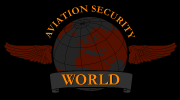Policies Put Air Marshals at Risk
A draft of the House Judiciary Committee's report also slams the Federal Air Marshal Service, accusing the agency and its former chief of retaliating against whistle-blowers and misleading congressional investigators.
The report comes two years after the Journal Sentinel revealed that air marshals could easily be spotted by the way they were required to pass through checkpoints at Mitchell International Airport and other airports nationwide. Committee investigators said they agreed with the newspaper's findings and faulted the air marshal service for not doing enough to correct those problems.
Official boarding procedures are "unacceptable to ensuring the anonymity of federal air marshals," the report says.
Because air marshals could be outnumbered by hijackers, the federal agents are supposed to travel undercover to ensure they have the advantage of surprise in a life-or-death battle for control of an airliner.
But in the years after the Sept. 11, 2001, terrorist attacks, air marshals have complained about dress and grooming standards they say make their identities obvious. They also have argued they are jeopardized by requirements for them to stay only in certain hotels - and to identify themselves as air marshals to hotel clerks to obtain discounts. The report agrees with those charges.
"The committee questions the importance of wearing a suit jacket on Thanksgiving Day as an effective strategy for ensuring federal air marshals blend in with fellow passengers," the report says.
As for the hotel policy, security was so lax that a Florida hotel publicly named the air marshal service as its "company of the month" for booking so many rooms, the report says. That "essentially advertises for any terrorist wishing to attack a location populated by a concentration of federal air marshals that such a target is the Sheraton Fort Lauderdale Airport," the report says.
U.S. Rep. F. James Sensenbrenner (R-Wis.), the committee chairman, and Rep. John Conyers (D-Mich.), its ranking Democrat, started the inquiry after reports in the Journal Sentinel and other news media about gaps in aviation security. Sensenbrenner was not available for comment Friday, but he agrees with the conclusions in the draft, committee spokesman Jeff Lungren said.
In May 2004, a Journal Sentinel reporter was able to sit at Mitchell and watch a few well-dressed passengers identify themselves to Transportation Security Administration officers before entering airport checkpoints. The officers led those passengers up checkpoint exit rows - bypassing the metal detectors that everyone else must pass through - and asked them to sign a logbook in view of other passengers.
That procedure applied only to air marshals and other armed undercover officers. Under pressure from U.S. Sen. Herb Kohl (D-Wis.), Thomas Quinn, then director of the air marshal service, vowed to change that procedure.
Quinn repeated that promise to the House committee in October 2004, but 1 1/2 years later, "too little progress has been made" in finding ways for air marshals to bypass checkpoints without calling attention to themselves, the report says. "More needs to be done, and it needs to be done immediately."
The air marshal chief also promised the committee in October 2004 that air marshals would receive new identification cards that would let them receive government discounts at hotels without revealing that they are air marshals.
In recent interviews, however, air marshals told investigators they had yet to receive new ID cards, the report says.
Dave Adams, spokesman for the air marshal service, said he couldn't comment because he had not read the report. The same response came from Kohl spokesman Patrick Morris and Arthur Lester, spokesman for the Federal Law Enforcement Officers Association, which provides legal and lobbying representation to air marshals and other federal agents barred from forming unions.
The association took the air marshals' concerns about the dress code and boarding procedures to Congress in April 2004, after the undercover officers' commanders had ignored them for at least six months.
Yet in May 2004, the report says, "Director Quinn assured committee staff that the problems at the (agency) were entirely exaggerated by the media and that an overwhelming majority of the rank-and-file federal air marshals are more than satisfied with . . . (agency) policies. Director Quinn went on to say that it is only a vocal '2%' of federal air marshals who are complaining."
But when investigators interviewed more than 30 air marshals from across the nation, every one cited problems with the agency; "an overwhelming majority" believed agency policies threatened their safety and anonymity; and most said they feared retaliation if they complained, the report says.
That was followed by an October 2004 letter in which Quinn responded to a question from Sensenbrenner and Conyers by saying that no air marshal had ever asked for the dress code to be changed. Investigators said, however, that they found "numerous e-mails and reports" from air marshals seeking changes.
"It is unacceptable for (the agency's) management to be oblivious to the problems facing their organization, either because there is no established system for managing requests for policy modifications or because there is a deliberate effort to ignore such requests," the report says.
And air marshals had reason to fear retaliation: Even the special agent in charge of the service's Atlanta office was yanked from his post after cooperating with the congressional inquiry, the report says.
Others were disciplined for speaking to the news media, under a policy that government lawyers found unconstitutionally broad. Yet top agency officials cooperated with television reports that detailed procedures air marshals thought should be secret, the report says.
"Disciplinary procedures . . . on their surface, can be characterized as unfair and even retaliatory," the report says.
The Judiciary Committee is to discuss the report Thursday.









0 Comments:
Post a Comment
<< Home